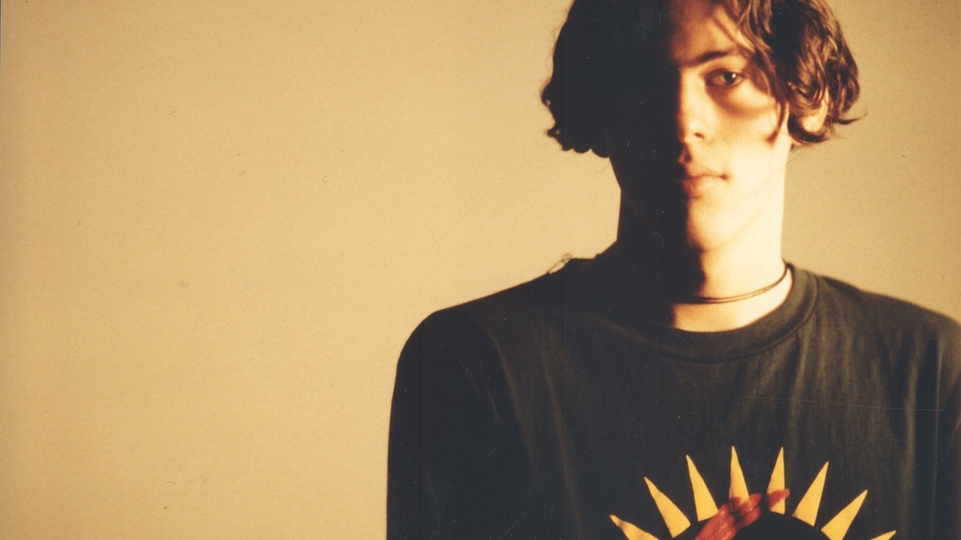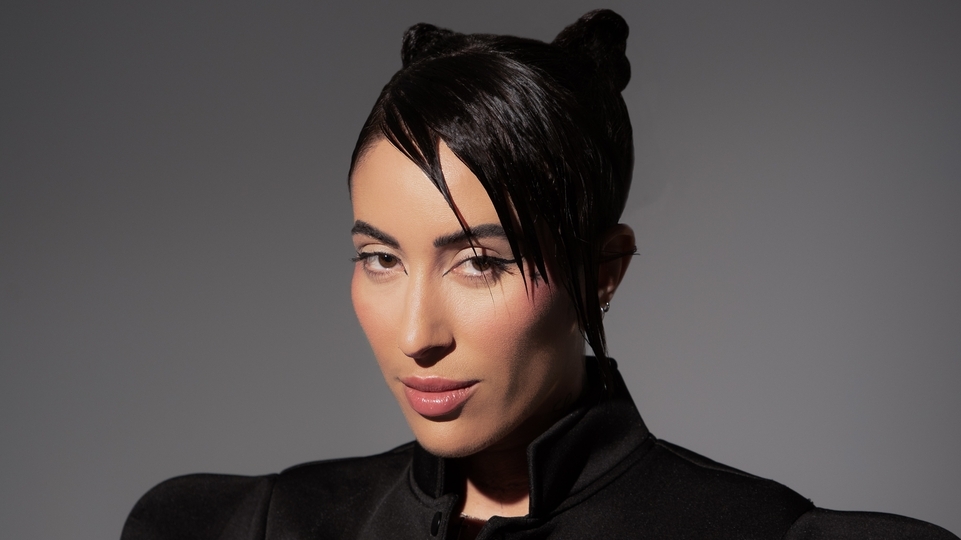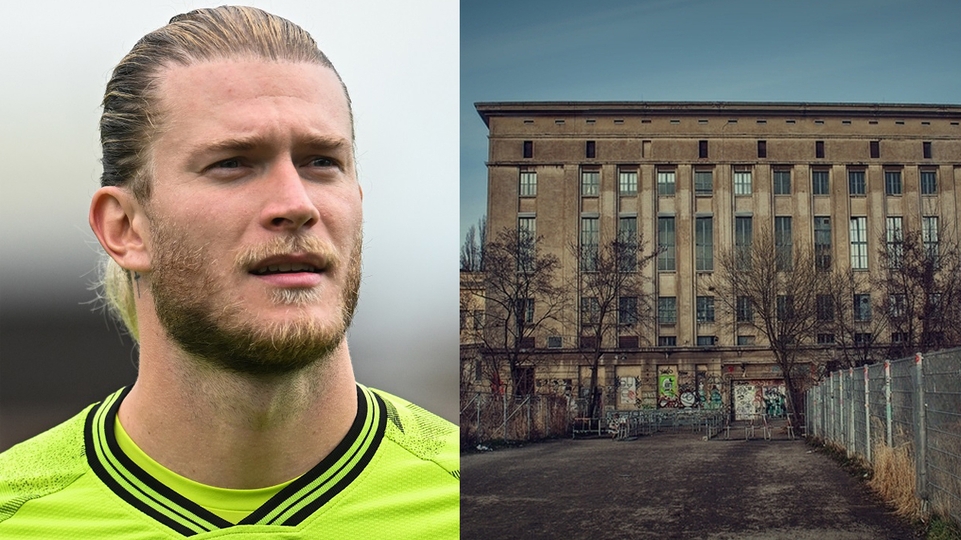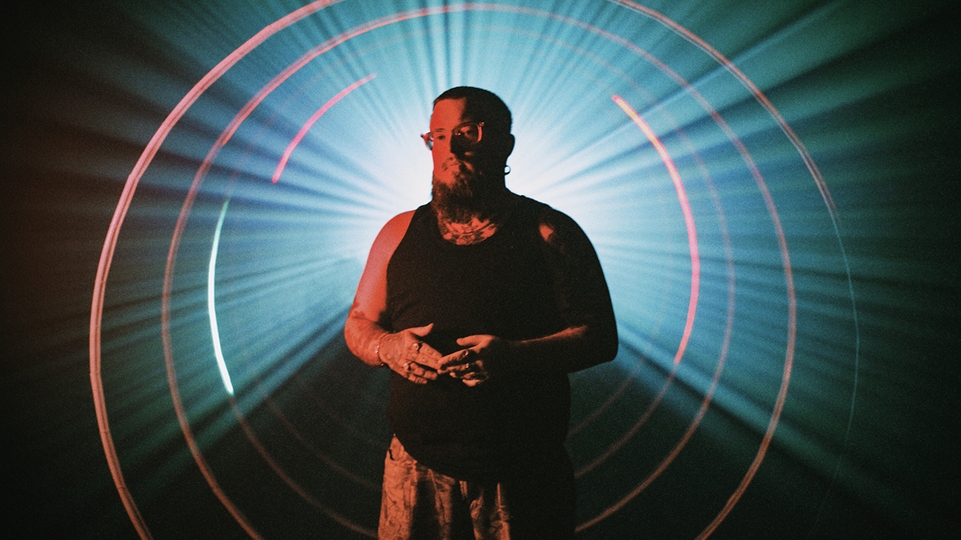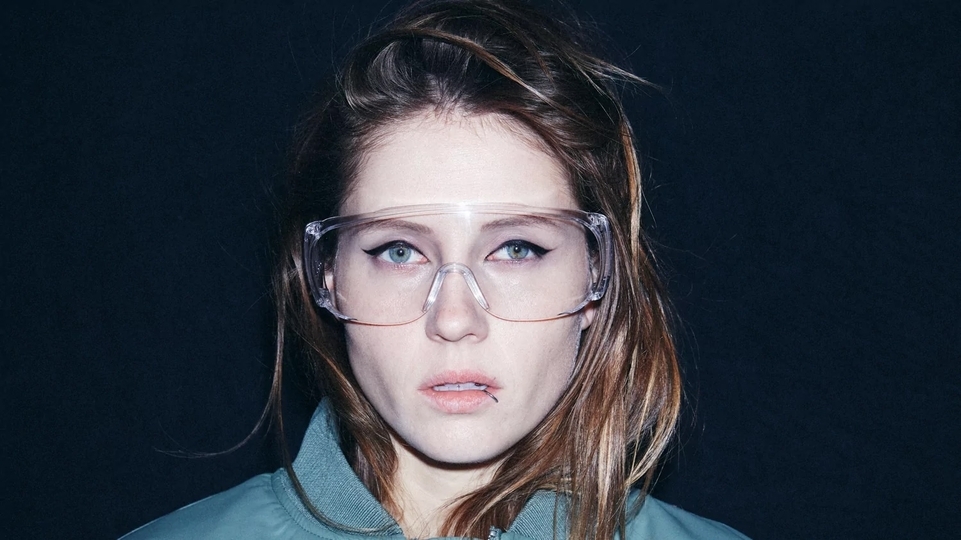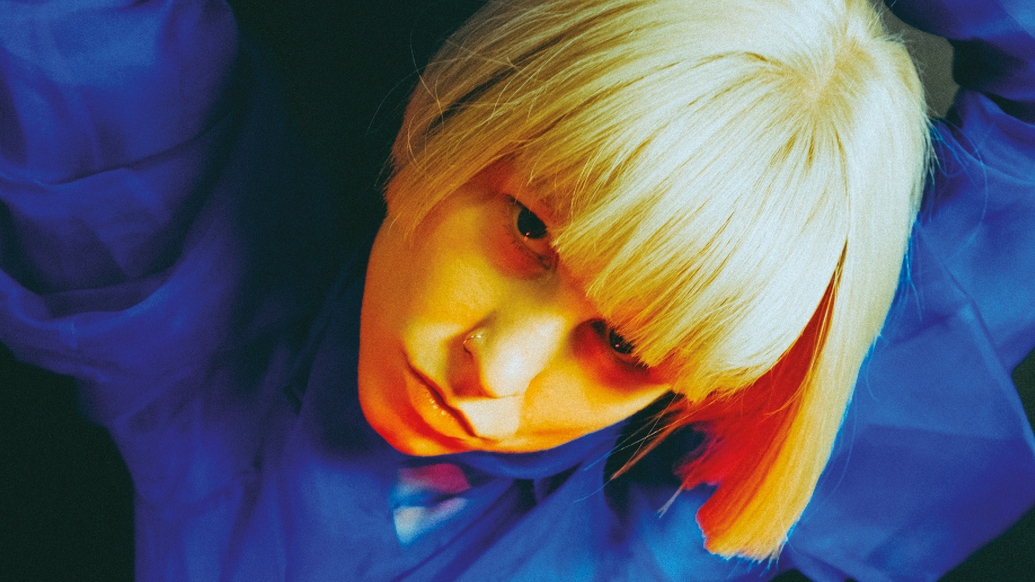
Volvox: The techno firebrand raised in the rave
Volvox is one of the most exciting names in techno right now, playing uncompromising DJ sets around the world and running the essential Unter events in New York. But, as DJ Mag finds out when we meet her in London, it’s her years spent on the dancefloor that have really shaped her...
On entering Room 1 at the former factory building of E1 in East London, one thing is immediately striking. It’s 2am — the clocks have been pushed forward due to daylight saving — it’s day three of the inaugural Re-Textured Festival, and Ariana Paoletti, aka Volvox, is captivating a crowd. For the next two hours, the concept of time dissipates for those on the dancefloor.
Paoletti has a precise mixing technicality in layering together strains of techno, from industrial to high-intensity acid, which acts like hypnosis. If you were to close your eyes, you could easily be transported into the depths of Berghain; an establishment that she’s become very close to over the years. Volvox is a DJ’s DJ, with the ability to adapt to her surroundings — whether she chooses to display her knowledge of lesser-known acid and electro, or tougher-edged EBM — though it’s perhaps the harder, darker techno in her collection that she’s become best known for lately, a sound that provided the foundations of Unter and has subsequently pricked the ears of bookers all over the world. It’s a party she’s been involved in since its inception, and it has fast become one of the most integral underground parties in New York, somewhat sparking its own sub-culture.
“I really appreciate promoters that (like me) are focusing in on this queer techno angle, and trying to grow that into a category within the world of clubbing. I’m all about supporting these efforts. I feel very at home with this audience,” says Paoletti. Piecing together her own memories of raving has given her a greater understanding from a clubber’s perspective. She plays what she desires from a party.
“I think that’s a big aspect of who I am as a DJ,” she says. “I am from the dancefloor. Maybe that’s why I understand the dynamics of what a dancer is experiencing, and so I DJ to what a dancer would want to hear and feel. I feel very connected to the dancefloor in that way.”

“I am from the dancefloor. Maybe that’s why I understand the dynamics of what a dancefloor is experiencing, and so I DJ to what a dancer would want to hear and feel”
Although born in São Paulo, Brazil, Paoletti spent her teens growing up in the post-industrial American city of Buffalo, New York. “I was living there at a time when it was a very depressed place economically, but it used to be a super-vibrant city,” Paoletti says. “It was one of the wealthiest cities in the United States back in the ’20s. Because of its location on the Eerie Canal, it was a major inlet for manufacturing for the whole North Eastern United States.”
We’re sitting in her Airbnb in Dalston, on a leafy street away from the busy Junction. It’s quiet; a perfect sanctuary for the last night of her trip across the UK, having played Liverpool, Manchester and London this weekend, with a guest slot at NTS Radio thrown in for good measure. She sips her tea, and we continue to talk about her time in Buffalo.
“It has this super architecture, lots of buildings, lots of warehouses that were left over. So there was a really flourishing rave scene. I went to my first rave in the year 2000,” she says. “I went to a lot of events in warehouses. Events with waypoints, cards where you had to find the guy, then go to the place — you know, the classic rave stories. Five rooms of techno, trance, house, drum & bass... chill out room. The first rave I actually ever went to was at the Niagara Falls convention centre, which is enormous. It was legal. It’s actually kind of sad when you think about it these days, how people — at least in the United States — are not allowed to congregate in these numbers anymore. It’s just not allowed to happen. In NYC, if you get more that 500 people together at a place, the cops start asking questions about what’s going on. Back in the ’90s, the authorities hadn’t really figured this out yet.”
With the RAVE Act put in place by authorities in the year 2000 across the USA, various restrictions made throwing illegal raves even more impossible. However, there were still plenty of wild, hedonistic parties happening across America, especially in the post-punk scene. Frequenting goth fetish nights like Manray in Boston, The Batcave and Smack! in New York had sparked an interest. Moving to Massachusetts she’d regularly make road trips to raves, staying in knock-off hotels that were more like cubicles with no ceiling, and plastic foraged mattresses. “My friend and I were doing elaborate goth make-up, getting into corsets and platform boots, in essentially a dodgy halfway house,” she laughs.
“We feel like artists from Latin America are tragically underrepresented, and we wanted to use all the interest in our platform to then highlight these artists that don’t get enough shine"
BOSTON
Already transfixed with what was going on in that particular scene, it was when Paoletti moved to Boston that the idea of throwing her own parties materialised. “I was like 22 or 23. I didn’t realise that someone my age could just book a venue, and book DJs, and be responsible with money on that level, and throw a successful event. So I was really inspired by people that I met in the scene in Boston that were my age and were doing those things.”
Paoletti joined the Basstown crew and became an integral part of Boston’s electronic music scene in the mid-2000s. It wasn’t until 2011 that she moved to New York. “I had a lot of fun experiences in the city before I moved there,” she says. “I had the sense even at that point that moving to New York was what I needed to do to become successful as an artist. But it didn’t come without its challenges. It took about a year-and-a-half where I wasn’t DJing at all. No one wanted to help me; no one was interested. It was a shoulder-to-shoulder situation in terms of what was going on in the club scene... people weren’t looking to bring in new talent at that stage in the game. In 2011, that just wasn’t part of the culture. So you know, I struggled, and I remember being really frustrated.”
Moving to NY with a group of friends, they rented a warehouse together, which became a communal event space, as well as a home. “I had this massive room that I paid a pittance for. I lived there for four years and it allowed me to move to NY, and be an artist, and to do parties and be at parties and become part of this culture. So I defi nitely look back on those memories fondly, even if they were challenging at the time.”
JACK DEPT.
Her foot in the door came via a club called The Flat in Brooklyn, situated close to the warehouse. “That’s kind of what gave me the leg up,” Paoletti says, “as then, I wasn’t begging for gigs — I actually had gigs to offer. I’ve given this advice to people before, that if you’re trying to establish yourself and trying to get something started just do that. Because that’s a great way to meet people, everyone wants a gig and everyone wants to be put on.”
It was at one of these parties that John Barclay approached her about a new club he was about to open in Bushwick, called the Bossa Nova Civic Club. John’s contribution to the rave scene in NY is well documented, and his foray into a new legit venue was an exciting prospect. “My party — which wasn’t even called Jack Dept. for the first two years — was just line-ups, because that was kind of the style at the time. It was just like, ‘If you know you know’. I don’t even have fliers from back then, because we didn’t make them. It was a Facebook invite, and here’s the DJs. That’s just how it was going back then. It was really DIY and it was really underground. That’s how this community formed. It was about the personal connections between everyone that was there. We still all know each other, and we still all work together. You name any DIY techno-orientated party in NY; we all came from there. I think that the ascendency of myself, my career, my parties and everything directly mirrored the rise of Bossa Nova Civic Club as a cultural centre for this new young community, this new culture, this new scene.”

Jack Dept., a party Paoletti started with John Barera, also operates as a raw and edgy, high-quality record label, releasing music by relatively unknown artists from the scene, with occasional runs of 180gram stamped vinyl. This April, they celebrated their fifth birthday playing alongside hardware fanatic Isabella live. When Paoletti was approached about getting involved in Unter — drawn in by the concept of putting hard techno in a dark basement — it was a very exciting proposal. Diligence was finally paying off, she was hungry and malleable, consistently showing she could try her hand at different things with great success; when these new opportunities arose, she naturally grew into them. Paoletti was no stranger to what was going on in the NY techno scene at the time, at parties like Blkmarket Membership or The Bunker.
“I’ve had this industrial background, listening to techno among all sorts of other things,” she says. “I basically went home and did some homework. Techno as a prompt. Honestly, after the first party that we did, that was in a tiny basement underneath a coffee shop just down the street from Bossa Nova, the next day people were like, ‘This is you’. The energy level and the intensity... you know when you just find yourself.”
Paoletti speaks with such tangible passion, it’s not hard to see that the beginning of Unter was a defining moment in her career, and one that she’s poured her heart and soul into ever since. “It was just over three years ago, and Unter has grown into a mammoth,” she says. “The party consistently draws between 800-1,000 people. Even with the super complex door, with no publicly available tickets in many cases, and crazy complicated entrance procedures. The right crowd and the right vibe is paramount to us. The amount of work and thought that goes into protecting that space... I just can’t overstate it.”
Through creating a safe space to party, Unter has developed a dedicated following that respects the rules of engagement and, “once you learn what they are, you can just do your thing,” she says. The revolution at Unter was not just developing in Bossa Nova’s basement, however. “I really want this queer techno thing to be a thing, because it’s really special, and it’s what I want to see around myself,” Paoletti says. “Especially in the last two years, I feel like these queer techno parties have been popping up everywhere, and I’m so grateful that they look to me as someone that they call on to be a part of it and to push it forward. I think this category is growing, and I’m really excited to be a part of it.”
DISCWOMAN
Back when the Jack Dept. parties were in full swing, she was approached by Discwoman to join their collective; a platform started in New York, putting a spotlight on female-identifying artists in the electronic music community. “I didn’t really understand that what I was doing could appeal to a broader audience. And that’s what Discwoman brought to my career,” says Paoletti. “It’s an incredibly fruitful collaboration that opened up huge new avenues and interest in electronic music. They and I are pushing the boundaries in many directions and many genres in terms of who is involved, and think that is really important. I’m so grateful that they had that vision, because I didn’t see it for myself.”
Outside of her hometown, it’s playing clubs with a similar ethos to Unter in which she flourishes. In October last year, she played a Boiler Room for Pornceptual — due to YouTube’s restrictions on what’s seen as explicit, it is only streamable via Porn Hub. “I was really happy to do that, because I wanted to show the world my most authentic setting,” she says. In January, Unter hosted a Boiler Room to celebrate underrated artists from Latin America. “We feel like artists from Latin America are tragically underrepresented, and we wanted to use all the interest in our platform to then highlight these artists that don’t get enough shine. That’s why we decided to do the Boiler Room — to promote these artists to a wider audience, capturing people in their truest sense.” The recordings provide a perfect snapshot into the world of Unter without disturbing its essence, showcasing artists such as Alpha 606, Adrestia, Berlin's Hyperaktivist and DJ Leeon from Bogotá.
Over the last few years, Volvox’s profile as a DJ has risen immensely, with international bookings that include stints at Berghain (the club she has an exclusive agreement with when playing in Berlin), Dekmantel Festival, De School and various other institutions. Two-thousand-nineteen is already becoming a monumental year of firsts. In April she debuted in Asia, and in March, the release of Vatican Shadow’s ‘Berghain 09’ compilation featured Volvox’s first single ‘Becoming’. It’s visceral and emotive, exploring the darker side of techno with an urgent bassline that contorts throughout the seven minutes, providing points of tension and moments of clarity. It’s explosive, and decisive in determining where it places Volvox in her journey right now. Her relationship with Dominick Fernow, aka Vatican Shadow, began when she met his partner Becka Diamond, the manager of Hospital Productions.
“She was a Boston hardcore girl,” Paoletti says. “It’s so crazy, because our lives have been running parallel for so many years, and we never made a connection until her and Dominick moved to Berlin for a few years. We just hit it off right away, it was like we’d been friends for years.” On one of the coldest, darkest nights of January, Diamond took Fernow to watch Volvox play. It was the weekend after the Berghain New Year’s Eve marathon, a somewhat low-key night in Panorama Bar, where Paoletti decided on a Belgian new beat orientated set. “I just completely indulged myself and what I love,” she remembers. Fernow was impressed.
When she bumped into them a year-and-a-half later, he expressed an interest in working together. “I went home from that meeting feeling really inspired, because Dominick has this background in industrial and noise and the more extreme edges of electronic music, so we connected on that level.” A great aspect in the ascension of Volvox’s profile is bookings that mirror the ethos of her own party — promoters that “get it”. She’ll be playing two global queer festivals this year; Whole in Leipzig and Milkshake in Amsterdam. This summer, she’s making a debut performance at Movement in Detroit, a festival she’s been frequenting religiously for 10 years.
There’s an energy brimming in Paoletti when she talks about music that never falters, and it’s that — plus her staying power and discernment — which has got her to where she is today. As she says herself, she “comes from the scene”, and right now, she’s a prominent voice within it.
